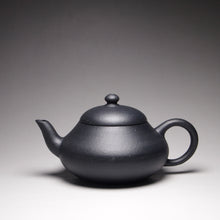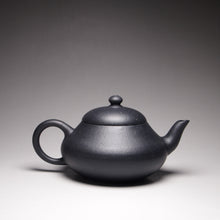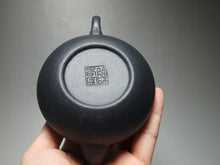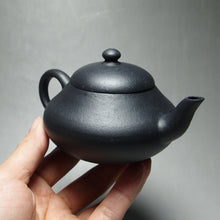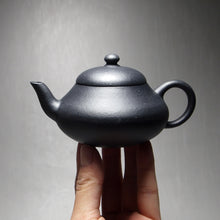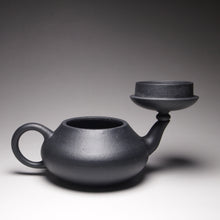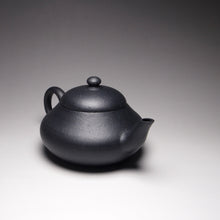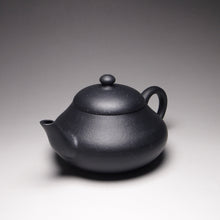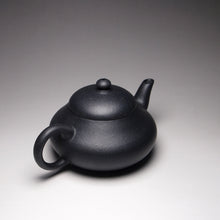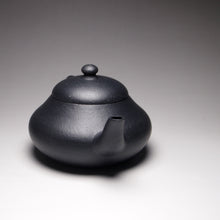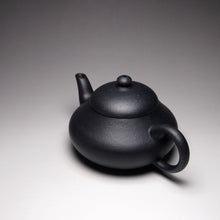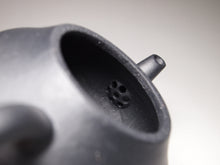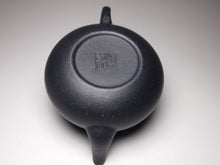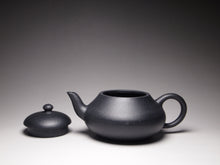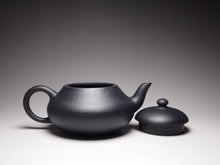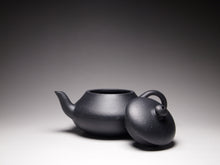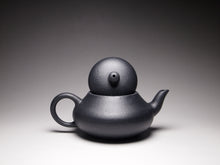
Capacity: Approximately 145ml
This "heini" or "black clay" Yixing teapot is produced by firing the 5 colour clay in a low oxygen environment in the kiln. Reduction fired 5 colour clay appears almost black.
Firing a teapot in a low-oxygen environment is called “wuhui” 焐灰 which can be loosely translated as “smother with ash to fire.” The teapot is stuffed with dry rice straw, placed in a clay box and surrounded with more rice straw before being covered. When it is fired in this way, the straw uses the oxygen when it burns to ash, reducing the oxygen in the clay box while the teapot is being fired. This creates the reduced oxygen environment that gives the clay its black appearance.
This teapot was made from a special blend using only Yixing clays. This clay includes aged and processed Yixing clays blended together in various amounts, shaped and then fired to get the results pictured above. Clays in the mixture include: Tianqingni, Dicaoqing, Zhongcaoqing, Qingduan, Zhuni, Zhuni Dahongpao, Benshan Lüni, Huangjin Duan, Xiao Hongni, Baiyuduan, Jiangponi.
The resulting mixture is a clay with porosity somewhere in between zini and hongni and a rich and warm appearance.This is the first mixed clay teapot released by Lin Hanpeng, with the rest of this studio's releases being original ore clay (clay from one ore alone). Yixing clay recipes like this, made from various amounts of original ore clay, have a long history in the industry, with many antique pots made with recipes consisting of more than one kind of Yixing clay.
This pear shape teapot was made by Lin Hanpeng and Chen Chunhong Studio. This pot is known as "half-handmade" as the sculptor uses a molding tool to shape the body, and uses his hands for the handle, spout, holes, and smoothing out the body. In fact, no machine was used in it's shaping as the use of the tool is entirely manual.
You can read more about half handmade teapots in our blog entry here.
Preparation Before Use
Yixing Teapots should be prepared before using the first time. This is called "opening the pot". It removes the dust from firing the teapot.
We recommend rinsing the teapot under warm water two or three times, then filling the teapot with boiling water and emptying it out two to three times. After this the teapot is ready for use.

















